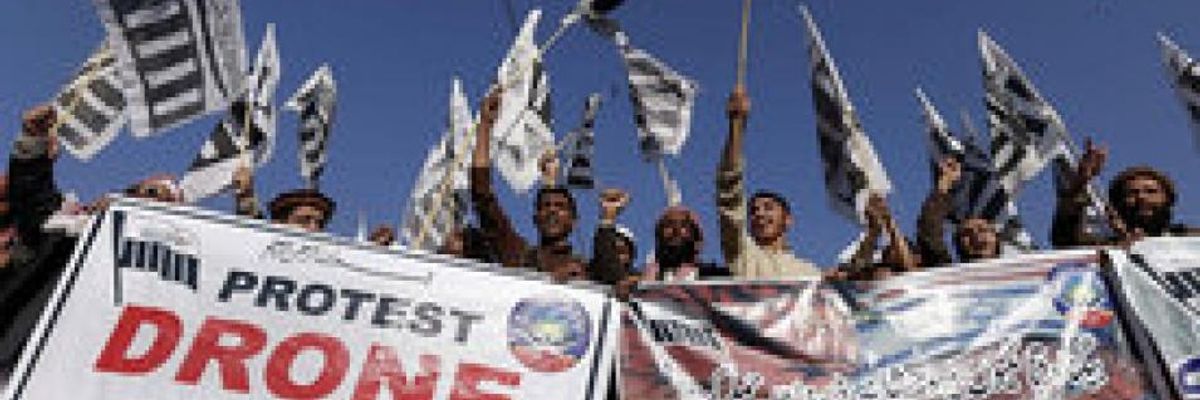Ongoing protests against U.S. drone strikes in Pakistan are fueling a non-violent blockade along its border that have now forced a halt to NATO military supply convoys heading to neighboring Afghanistan, a Pentagon spokesman confirmed Tuesday.
The route, which runs from Torkham Gate at the Afghanistan-Pakistan border to the Pakistani port city of Karachi, is one of the primary commercial transit routes of American military cargo out of Afghanistan, said Pentagon spokesman Mark Wright. He added that the U.S. military was "voluntarily" halting shipments through that route "to ensure the safety of the drivers contracted to move our equipment."
Leading opposition leader Imran Khan, whose Tehreek-e-Insaf party (PTI) had organized the protests, said Tuesday that the blockade would not stop until the U.S. brought an end to the deadly drone strikes within his country.
Speaking at a rally of PTI party members who were manning the blockade at one of the country's toll plazas, Khan said that the action was not a declaration of war but a "peaceful way to protest against U.S. aggression and its continued attempts to impede the return of peace to Pakistan."
"The U.S. poses to be a friend of Pakistan. Which friendly country attacks another friend?" he continued.
According to Pakistan's News International,
The PTI workers, along with some from the party's coalition partner, Jamaat-e-Islami (JI), have imposed a blockade on Nato supplies by camping at five points in Khyber Pakhtunkhwa. For the last 10 days, they have been disallowing trucks taking goods for Western troops in Afghanistan. They stop vehicles, check their shipment documents and send back those suspected of taking supplies for NATO forces. As hundreds of containers have been stalled by the protest, over a dozen were forced to go back at the Ring Road sit-in.
[Khan] advised his workers not to resort to violence or break the law during their protest against NATO supplies. He told them not to create problems for Afghan Transit Trade vehicles.
Khan vowed that the protest would continue "for an indefinite period," adding "if anyone thought that the PTI would lift the blockade, they were mistaken."
On November 23, thousands of protesters first blockaded the supply route, though at the time Prime Minister Nawaz Sharif assured that the NATO supply routes will remain open.

